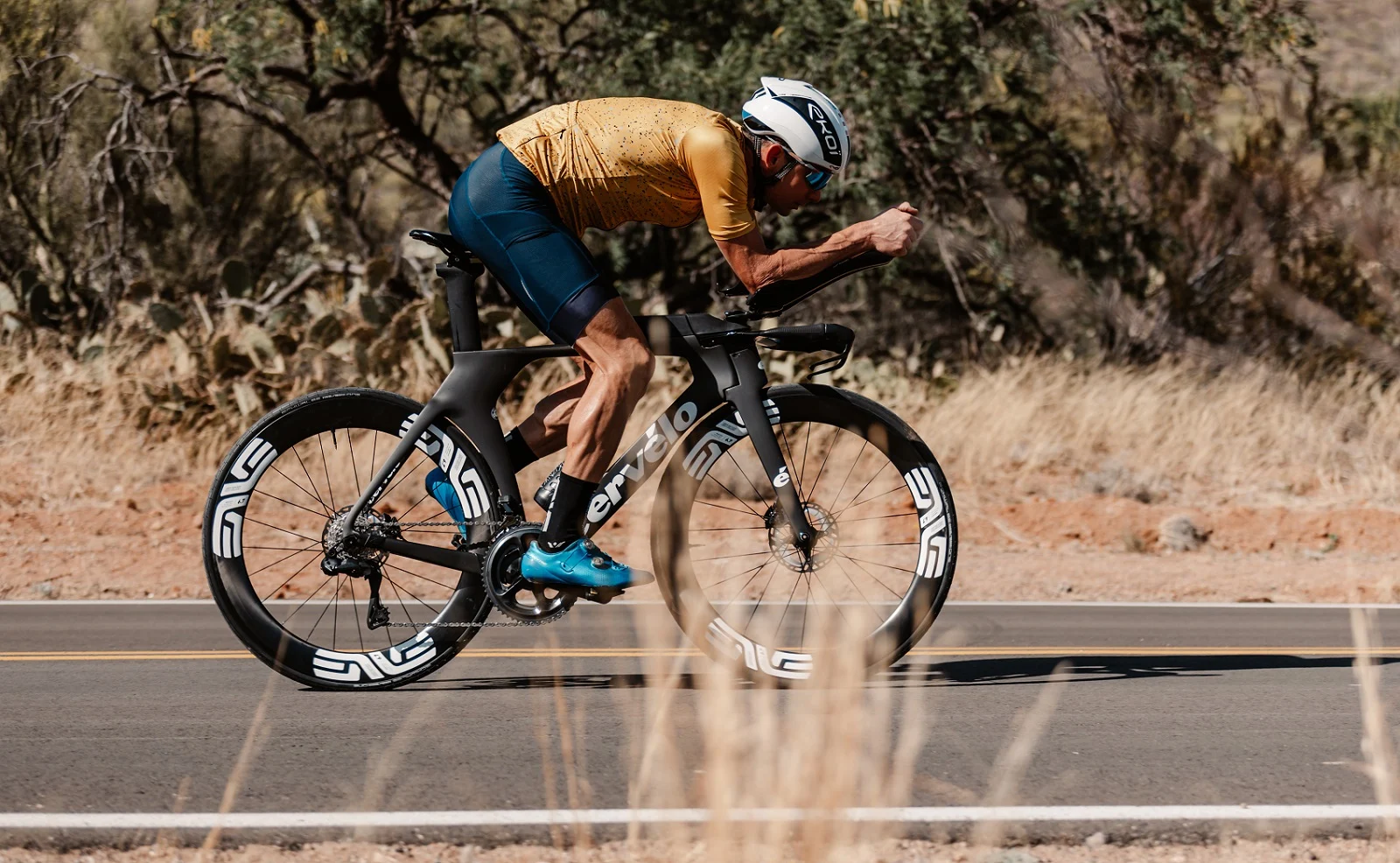
Whether you ride road, gravel, or triathlon bikes, carbon wheels are the GOAT of all performance upgrades. Put short, carbon wheels deliver high ROI for speed, comfort, and overall riding experience.
Carbon bike wheels are generally more aerodynamic, lightweight, and responsive. They can also be more compliant, or stiff, depending on the terrain and bike setup they’re made for.
No doubt, the best carbon wheels are a high-dollar investment that comes with much to consider. This guide discusses the preferred specs, features, and product recommendations based on these cycling disciplines:
Road | TT/Triathlon | Gravel | MTB | FAQ
Carbon Wheel Specs & Features to Know
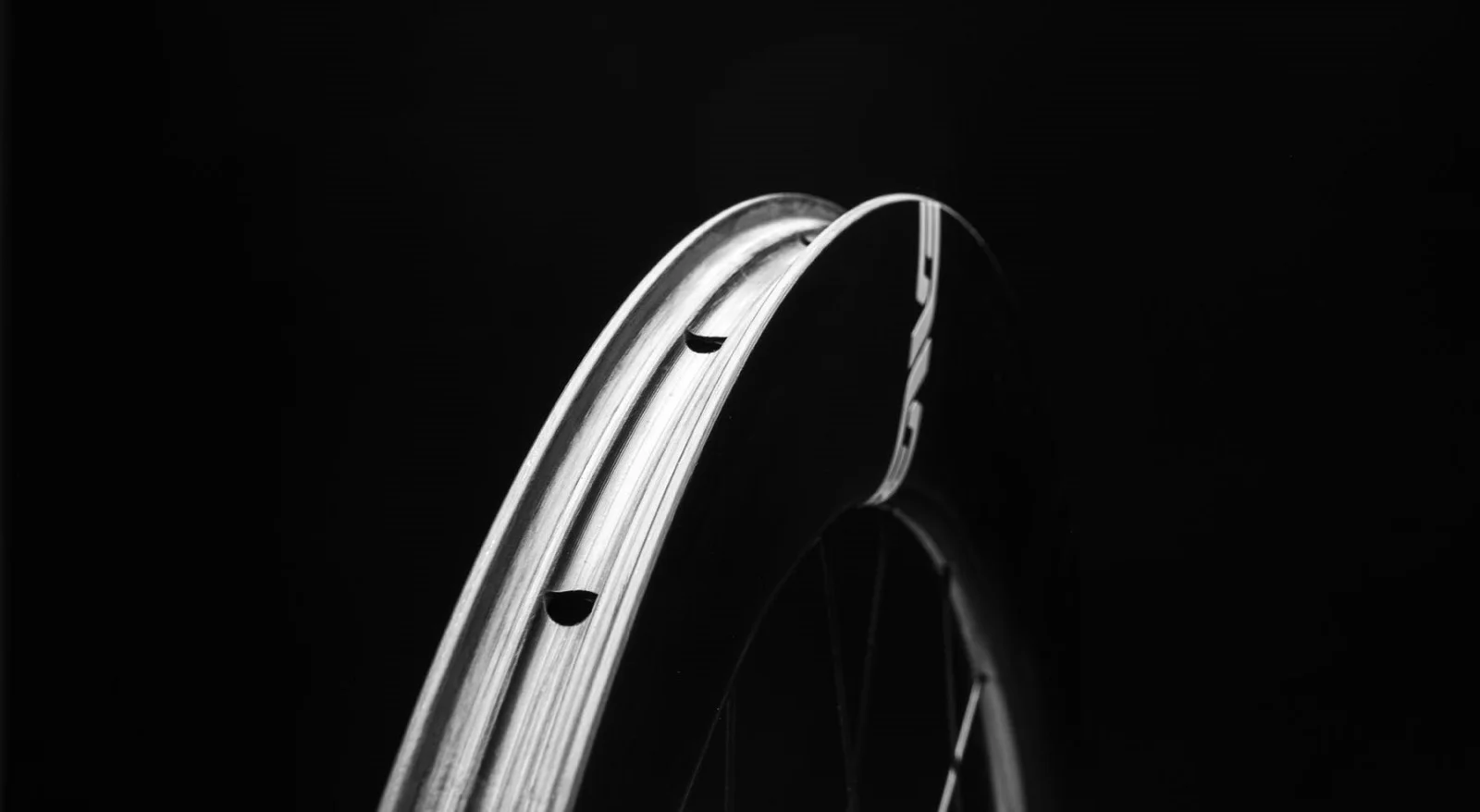
There are certain features and specifications that define different types of carbon bike wheels. Here are the basics.
- Wheel Depth: Deep carbon wheels and full-disc wheels are more aerodynamic, but weigh more compared to shallow carbon
- Inner Rim Width: The inside rim width of the wheel determines the range of compatible tire sizes. Most road bike wheels have an inner rim width of 19-21mm. Wider wheels can be stable and smooth rolling, but narrow is more aerodynamic.
- Weight: In addition to wheel depth, the overall weight of a carbon wheelset is largely based on the density of the carbon fiber used, plus the hubs, spokes, and build accessories.
- Stiffness: A thicker carbon wheel and/or high spoke count can create a stiffer wheel. Conversely, a thinner carbon wheel and/or lower spoke count makes for a lighter, more flexible wheel.
- Durability: Higher-quality carbon wheels and spokes can provide greater durability, sometimes at the expense of weight. But for off-road riding, the balance between durability and stiffness is an art and science.
- Hubs: The hub is a crucial component that directly affects weight and performance. Reputable carbon wheel builders use premium hubs while low-cost carbon wheels may compromise on hub quality.
- Brakes: Certain time-trial and triathlon carbon wheels are designed with rim brake tracks whereas other types of wheels cater to disc brakes.
For more performance-based insights, see the FAQs below to learn more about how much faster carbon wheels are compared to alloy, including the science and testing behind those gains. We’re not talking marginal gains, either, as carbon wheels can save upwards of 20-30+ watts, depending on the use case.
Let’s explore the features and characteristics to consider when purchasing carbon wheels for road, triathlon/time-trial, gravel, and mountain biking. We provide our top product recommendations for each category, all of which are 700c (29-inch) and tubeless-ready carbon wheels.
Carbon Road Wheels
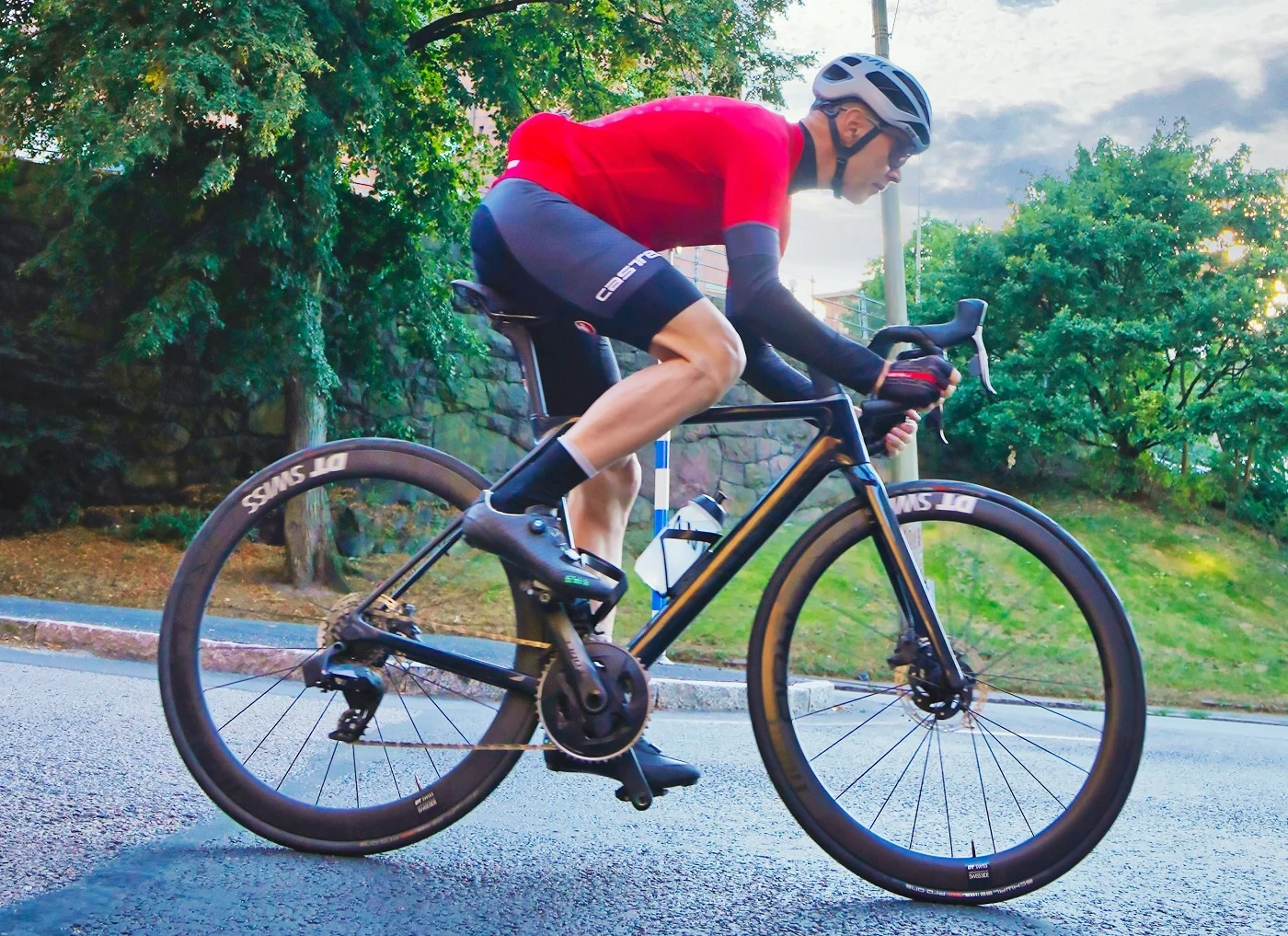
Carbon wheels are one of the most common upgrades for road cyclists. But it’s also one that comes with a lot of options. When investing in carbon road bike wheels, here are some of the major features to keep in mind.
- Wheel depth: A shallow rim provides better handling in crosswinds, while a deeper rim offers improved aerodynamics. For a balance of lightness and speed, consider 40-50mm wheel depth.
- Rim width: Most road cyclists will opt for a 17-23mm inner rim width to run a suitable road tire. For gravel tire compatibility, consider a wider rim between 23-25mm.
- Weight: If prioritizing weight savings, you can find carbon road bike wheelsets under 1,200 grams. The SES 2.3 from ENVE is a shallow, ultra-light carbon wheelset that weighs just 1,197 grams.
- Stiffness: When it comes to performance, a stiffer carbon road wheel is generally preferred for acceleration and handling. But for non-competitive cycling and touring comfort, a less-stiff carbon wheel might make more sense.
- Hubs: Certain wheel builders like ENVE, Shimano, and DT Swiss will often use their own hub technology. Other performance road hub options include Chris King and Phil Wood.
- Brakes: For road bikes with rim brakes, make sure the carbon wheel accommodates a rim brake track.
Recommended Carbon Road Bike Wheels
- ENVE SES 4.5 – $2,850/set
- ENVE SES 6.7 – $2,850/set
- Zipp 454 NSW – $2,200/wheel
- Zipp 202 Firecrest – $1,150/wheel
- DT Swiss ERC 1100 DICUT – $2,999/set
- Reynolds AR29 – $1,449/set
Carbon Wheels for Triathlon/TT
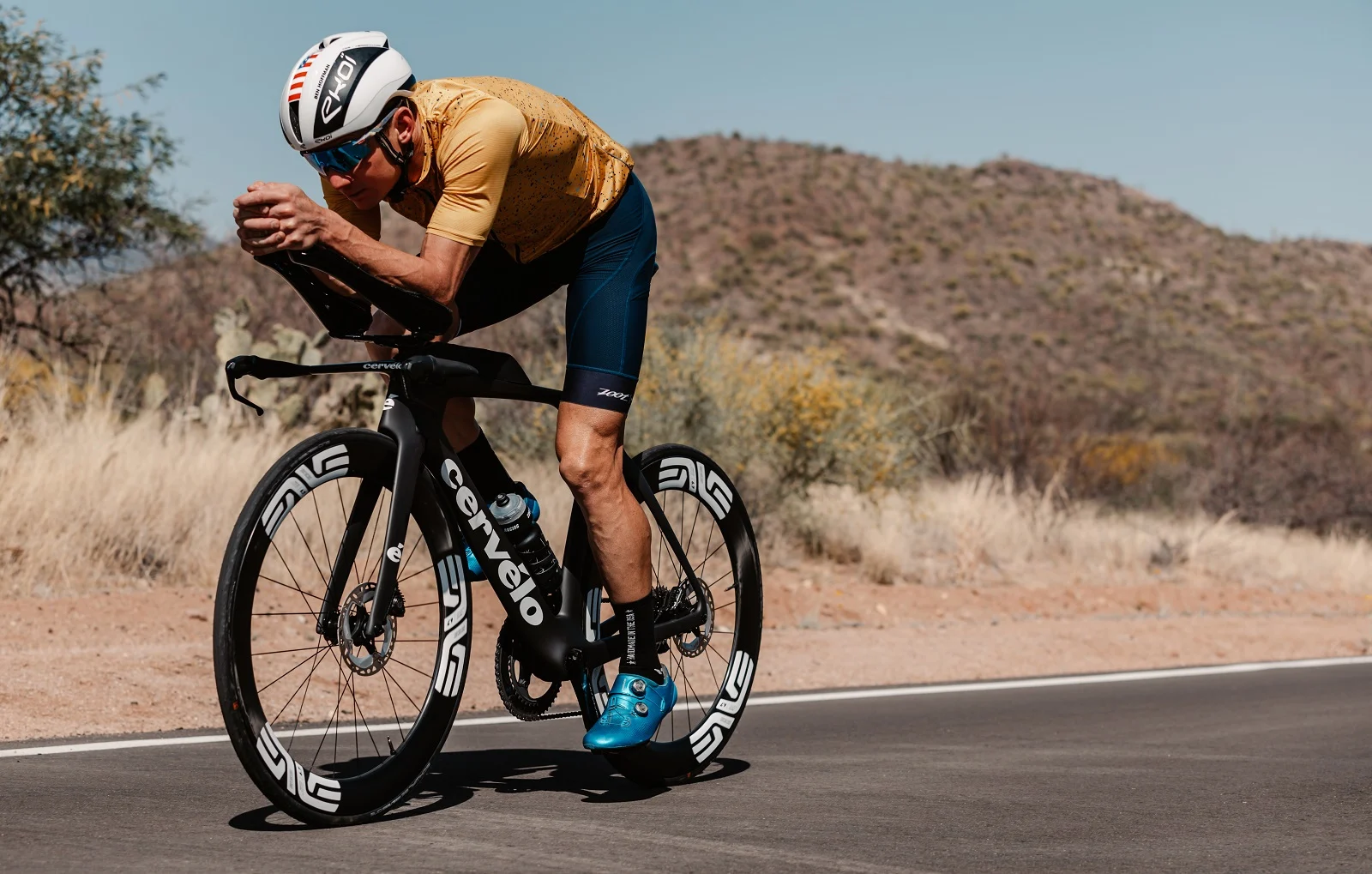
In both time trial and triathlon where every aerodynamic advantage matters, carbon wheels provide a massive upgrade. With the exception of certain Olympic-distance triathlon events, drafting is predominantly not permitted.
A carbon wheelset can provide tremendous gains that will shave seconds, if not minutes, off an athlete’s bike time. Here are the primary things to keep in mind when considering carbon wheels for triathlon and TT events.
- Wheel depth: Because aerodynamics reign supreme in TT/triathlons, a deeper carbon wheel is often preferred. Some athletes opt for a full-disc rear wheel. Depending on course conditions, consider a 50-80mm+ deep carbon wheel in the front and an even deeper wheel in the rear.
- Rim width: Most triathletes and time trial cyclists will opt for a narrow 15-21mm inner rim width. Not only is this a more aerodynamic wheel but it allows for a narrower and more aero tire choice, such as a 25mm tire.
- Weight: Weight savings matters more when climbs exceed 6-7 percent gradients. For triathlon/TT, deeper and more aero carbon wheels are preferred despite being heavier than shallow alternatives. Still, you can find an 80mm deep carbon wheelset under 1,800 grams.
- Stiffness: Stiff carbon wheels are generally preferred for power transfer and acceleration during triathlons and time trials.
- Hubs: Like the case with road wheels, most carbon wheel builders like Zipp, ENVE, and Shimano use their own hub technology.
- Brakes: Today’s triathlon and time trial bikes use both rim brakes and disc brakes, so make sure your choice of carbon wheels is compatible with your bike’s braking system.
Recommended Carbon Wheels for Triathlon/TT
- ENVE SES 7.8 – $2,550/set
- ENVE SES 6.7 – $2,850/set
- Zipp 808 Firecrest – $2,000/wheel
- Zipp 858 NSW – $2,000/wheel
- HED Jet 180 – $1,900/rear wheel
- HED Jet RC Black – $1,800/set
- Hunt 82 – $1,299/set
Carbon Gravel Wheels

Carbon wheels have become increasingly common in the gravel bike scene. The combination of being aerodynamic, lightweight, and vibration-damping makes carbon gravel wheels a priority upgrade for competitive cyclists.
So, what are the features and specifications to look for in a set of carbon gravel bike wheels? Here are the basics.
- Wheel depth: Like road wheels, finding a balance between aerodynamics and weight is key. Consider a shallower wheel depth of 60mm or less for gravel cycling.
- Rim width: Because gravel tires involve a wider range between 30-50mm+, you’ll want to ensure the inner rim width is between 19-25mm, ideally on the higher end of that range. My ENVE SES 3.4’s are 25mm wide and I run a 44mm gravel tire.
- Weight: Unlike road wheels, you can’t get away with ultra-light carbon wheels for gravel due to the off-road durability demands. But, with shallower options under 40mm in depth, you can find carbon gravel wheelsets of around 1,500 total grams or less.
- Stiffness: For gravel cycling, a moderately stiff wheel can help with power transfer, handling, and acceleration. But too stiff of a wheel won’t absorb the unpredictable terrain of gravel roads, making for a less comfortable ride. Seek out a balanced in-between, such as a semi-stiff carbon gravel wheel.
- Durability: Because strength and durability are vital for any unpaved riding, it’s important to use carbon wheels that are designed for gravel and off-road riding. Any road wheel will not cut it and will likely be damaged.
- Brakes: Almost all gravel bikes use disc brakes these days and gravel-spec carbon wheels are made with this in mind.
Best Carbon Gravel Wheels
- Zipp 303 Firecrest – $1,050/wheel
- ENVE G23 – $2,550/set
- ENVE SES 3.4 – $2,850/set
- ENVE SES 4.5 – $2,850/set
- Easton EC70 AX – $549/wheel
- Reynolds ATRx – $1,549/set
Related reading: see our post on 650b wheels for gravel
Carbon MTB Wheels

The decision to upgrade to carbon MTB wheels depends on the type of mountain biking you’re doing. In short, carbon bike wheels are not always better.
For instance, in downhill and enduro mountain biking where wheels take a lot of abuse, sometimes alloy wheels are preferred. But for cross-country/XC and trail, carbon wheels are usually worth the upgrade.
Whatever spectrum you’re on, here’s what to consider when investing in carbon MTB wheels.
- Wheel depth: Because weight and durability trump aerodynamics for mountain biking, shallow carbon wheels are what make up most MTB options.
- Wheel diameter: Most carbon mountain bike wheels come in 29-inch and 27.5-inch. While most riders opt for the former, make sure you choose the right wheel size for your bike and tire setup.
- Rim width: In terms of inner rim width, carbon mountain bike wheels range between 25mm and 35mm wide. 30mm wide is generally the sweet spot, but you can opt for wider options if you prefer a larger tire.
- Weight: Given that carbon MTB wheels are far more durable and resilient, they often weigh more compared to road and gravel wheels. You can expect a nice carbon MTB wheelset to weigh just over 2,000 grams
- Stiffness: Like gravel cycling, you’ll want to find a nice balance of stiffness and compliance with carbon mountain bike wheels.
- Durability: Durability is crucial, and even with a premium set of carbon MTB wheels, you’re susceptible to potential damage. Make sure to opt for a carbon wheelset that’s backed by damage protection warranties.
- Brakes: Almost all mountain bikes use disc brakes and MTB-specific carbon wheels are made with this in mind.
Recommended Carbon Wheels for MTB
- ENVE M9 – $2,550/set
- ENVE M6 – $2,550/set
- Industry Nine Trail-S Carbon 1/1 – $1,600/set
- Industry Nine Hydra Enduro S Carbon – $1,850/set
- Reynolds TR 249 – $1,150/set
How Much Faster is Carbon Wheels?
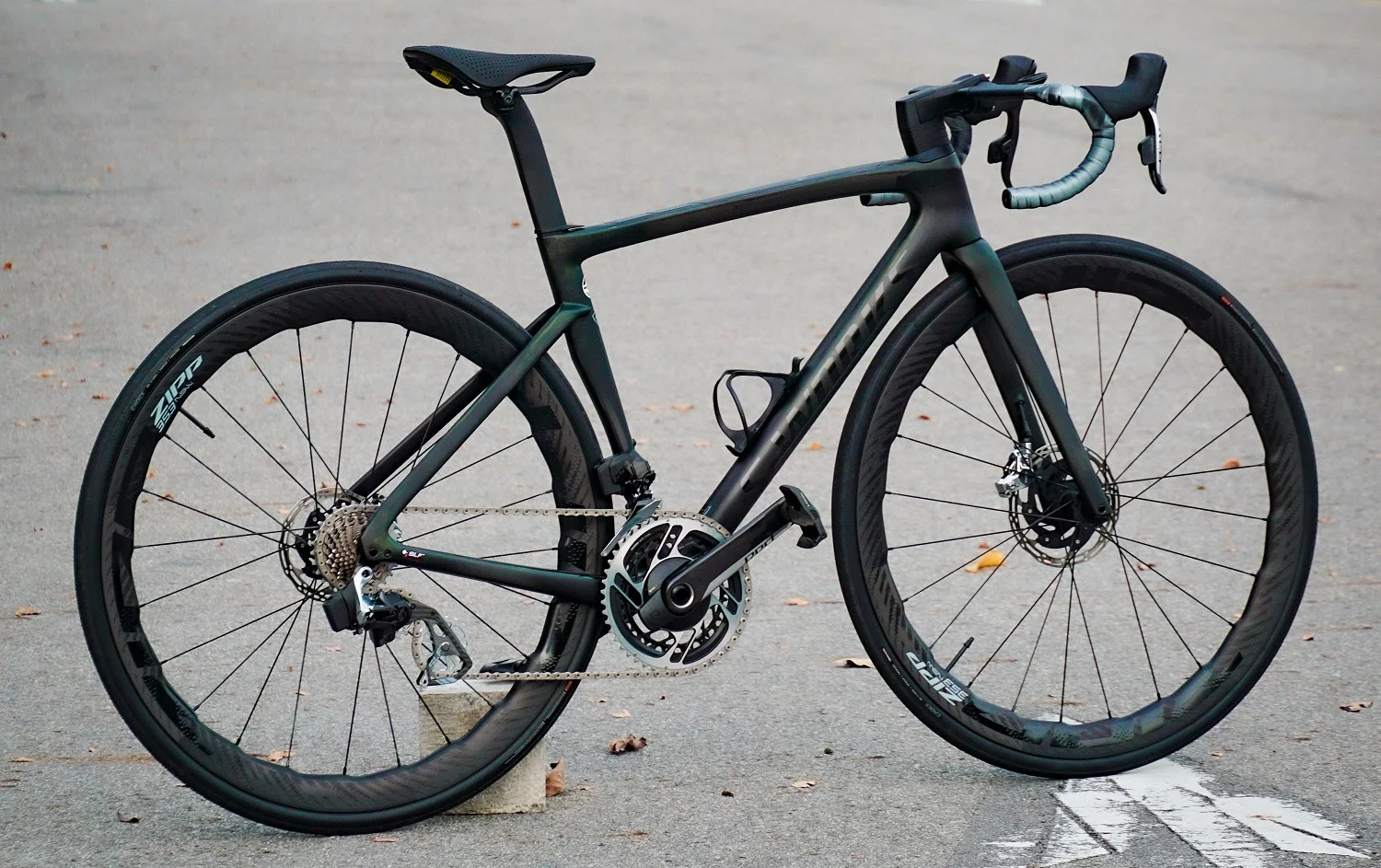
In terms of aerodynamics, the gains from carbon wheels become stronger the faster you go.
- To maintain a speed of 20 mph (32 km) on flat roads, one test showed carbon wheels 15.7% more efficient compared to aluminum alloy.[1]
- The gains from carbon wheels increase at higher speeds. In a descending test, a carbon wheelset went 29.8% faster than a standard alloy wheelset.[2]
- How much faster are deep-dish aero wheels? One test found deep carbon wheels to save 50 seconds over 40km (about 25 miles).[3] That equates to 3 minutes and 45 seconds for the full Ironman bike leg.
Keep in mind that for cycling that involves a lot of climbing and steep pitches, weight and stiffness matter more than aerodynamics.[4] So, when this is the case, a shallower, lighter-weight carbon wheel will outperform a deep carbon wheel.
How Much Do Carbon Fiber Wheels Weigh?
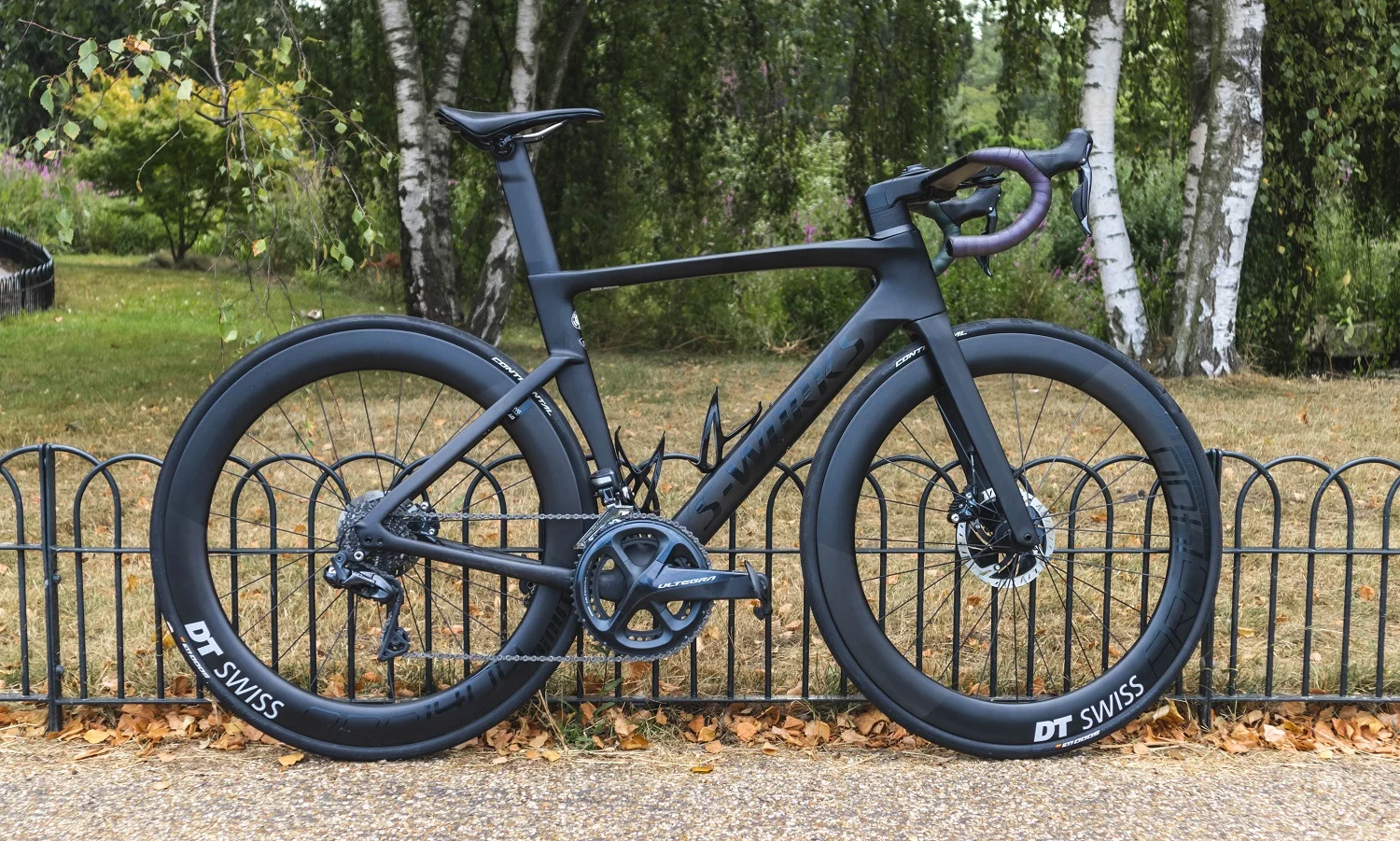
The overall weight of carbon wheels depends on the size, composition, and design based on the type of riding they’re made for. Some of the lightest carbon wheelsets for road cycling can weigh between 1,000 grams and 1,200 grams. For MTB wheels which require greater strength and durability, carbon wheels can weigh between 2,000 grams and 2,400 grams.
In most cases, a complete set of carbon wheels (with hubs and spokes) weighs between 1,200 grams and 2,000 grams, with the average being around 1,600 grams for a quality carbon wheelset.
Are Deep Carbon Wheels Better?
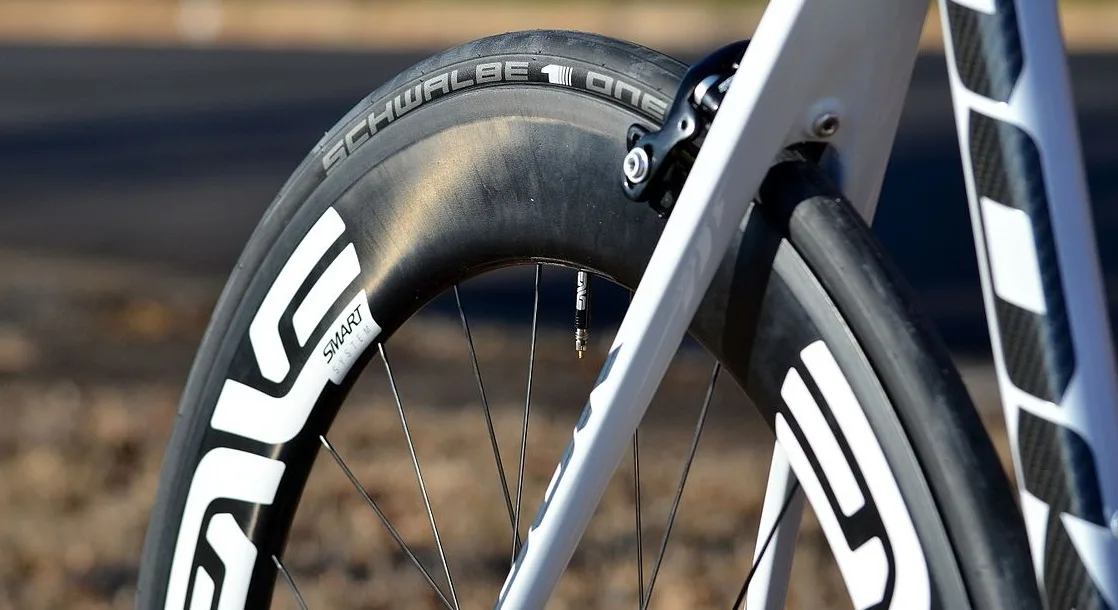
Deep carbon wheels are generally more aerodynamic and faster on flat roads and descents. But because deep carbon wheels use more carbon and therefore weigh more, they’re not as advantageous for climbing.
So, for triathlon and time trail events, yes, deep carbon wheels are often better. But for courses with more climbing and elevation gain, prioritizing a lightweight carbon wheelset is better.
Before Upgrading to Carbon Wheels…

There are a few major things you should know before spending thousands of dollars on a carbon wheel upgrade.
- Keep in mind the width of the wheel before purchasing. Some carbon road wheels are slightly wider and can accommodate both road and gravel tires, while other narrow designs are specifically made for road tires.
- Depending on the wheel’s depth and build components (hub, spokes, etc.) a lightweight carbon wheelset generally weighs between 1,200-1,800 grams, which is substantially less compared to 2,000-2,500+ gram alloy alternatives.
- Deep carbon wheels, or deep-section aero wheels (>50-60mm), are generally more aerodynamic and faster at high speeds but are not as lightweight as shallower carbon wheels (<40mm) and may compromise on climbing.
- Not all carbon bike wheels are created equally, and you often get what you pay for in terms of build quality, performance gains, and product support. We highly recommend buying from credible brands/stores that stand by their products.
- I stand by the brands ENVE, Industry Nine, Zipp, HED, and Reynolds. I’ve ridden carbon wheels from these manufacturers (currently ENVE and i9), and they provide exceptional quality performance, durability, and warranty support if/when an issue occurs.
Without question, carbon wheels are the best performance upgrade over any other bike accessory, especially for road, triathlon, and gravel cycling. For more resources, see references and related posts below.
You Might Also Like
- Aero Bars: Best Clip-on & Full Aero Handlebars
- Triathlon Bikes: Entry-Level to Elite
- Aero Helmets for Triathlon/TT
- Smart Trainers for Zwift, Rouvy, and TrainerRoad
Scientific References
1,2. Affordable Alloy Vs Expensive Carbon Wheels Real-World Testing
3. Are Deep Carbon Wheels Really That Much Faster?
4. The Most Effective Marginal Gain. Aerodynamics with Josh Poertner
Endurance athlete, professional off-road cyclist, and avid blogger, Tyler Tafelsky participates in long-course multisport and cycling events. Today, Tyler competes in ultra-distance cycling races at the professional level. Since starting Better Triathlete in 2014, he has been the head of content for the site's editorial team. Learn more about Tyler

